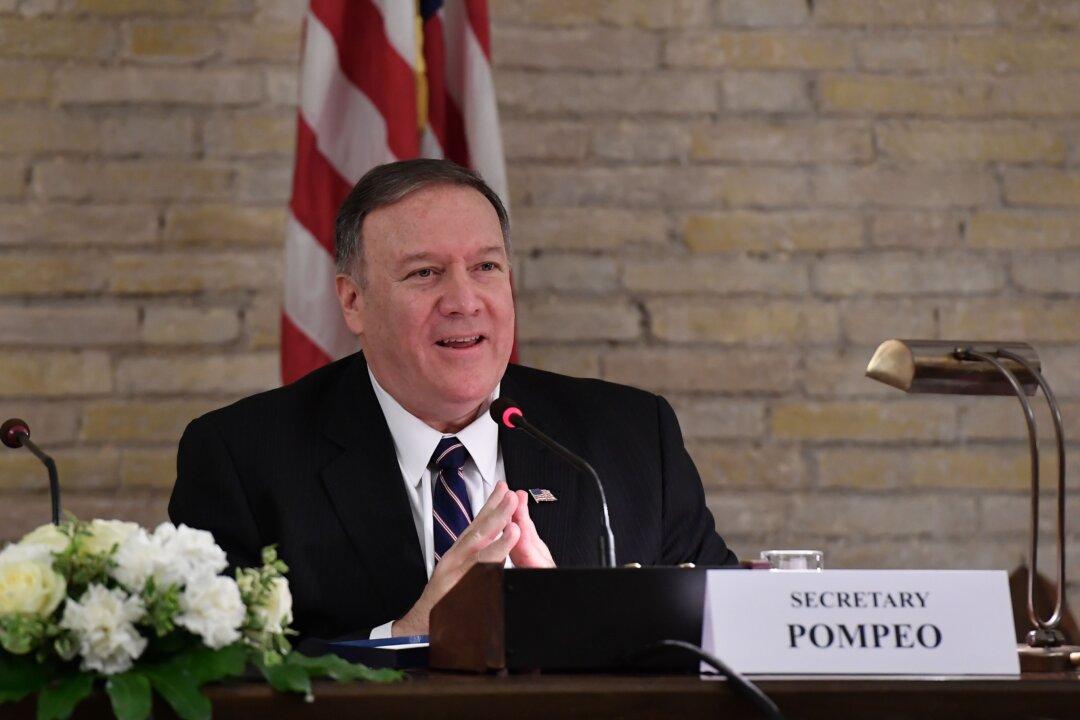Secretary of State Mike Pompeo said in an interview aired on Oct. 20 that there wasn’t any quid pro quo tied to the temporary hold placed on U.S. military aid to Ukraine.
Pompeo defended the administration’s handling of the aid, as House Democrats pressed their impeachment inquiry, which is centered on President Donald Trump’s request for Ukraine to look into potential wrongdoing by former Vice President Joe Biden and his son, Hunter Biden.





